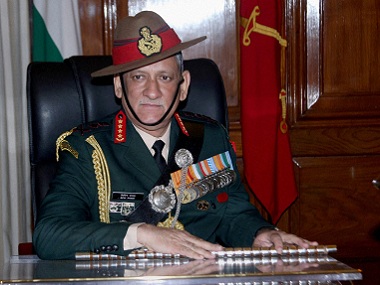New Delhi: A high-level meeting on Friday reviewed the situation in the Sikkim sector where tensions have flared up between Indian troops and Chinese military over construction of a road by China in a strategically key area near the India-China border. The meeting was attended by army chief General Bipin Rawat, National Security Adviser Ajit Doval and Foreign Secretary S Jaishankar among others and it carried out detailed analysis of the overall situation in the sensitive areas. General Rawat, who returned from Sikkim on Friday morning, presented a detailed account of ground realities in the wake of the stand-off between the two armies triggered by China’s attempts to build a road at Donglong which Bhutan says belonged to it. [caption id=“attachment_3759145” align=“alignleft” width=“380”] File image of General Bipin Rawat. PTI[/caption] The situation was reviewed in the meeting, sources said. General Rawat had on Thursday had visited the army’s formation headquarters in North Sikkim and was briefed by top commanders about the face-off as well as the current situation. The flashpoint was China’s attempts to build a road in the strategically key area of Donglong as its link to the Sikkim-Bhutan-Tibet tri-junction could give China a major military advantage over India. The Indian Army had blocked construction of the road. Commenting on the issue, the external affairs ministry on Friday said India was “deeply concerned at the recent Chinese actions and has conveyed to Beijing that such construction would represent a significant change of status quo with serious security implications for India”. A 220 kilometres section of the 3,488 kilometres India-China border from Jammu and Kashmir to Arunachal Pradesh falls in Sikkim. On Thursday, China had asked India to withdraw its troops from the Donglong as a precondition for a “meaningful dialogue” to settle the boundary issue, warning that the Indian Army should learn “historical lessons”, in a reference to the 1962 war. Reacting to it, defence minister Arun Jaitley said India of 2017 is different from what it was in 1962. “If they are trying to remind us, the situation in 1962 was different and India of 2017 is different,” Jaitley said when asked about China’s warning on Thursday. The defence minister said the Bhutan government had made its stance clear and China was trying to alter the status quo in the area.
A high-level meeting reviewed the situation in the Sikkim sector where tensions have flared up between Indian troops and Chinese military.
Advertisement
End of Article


)

)
)
)
)
)
)
)
)



